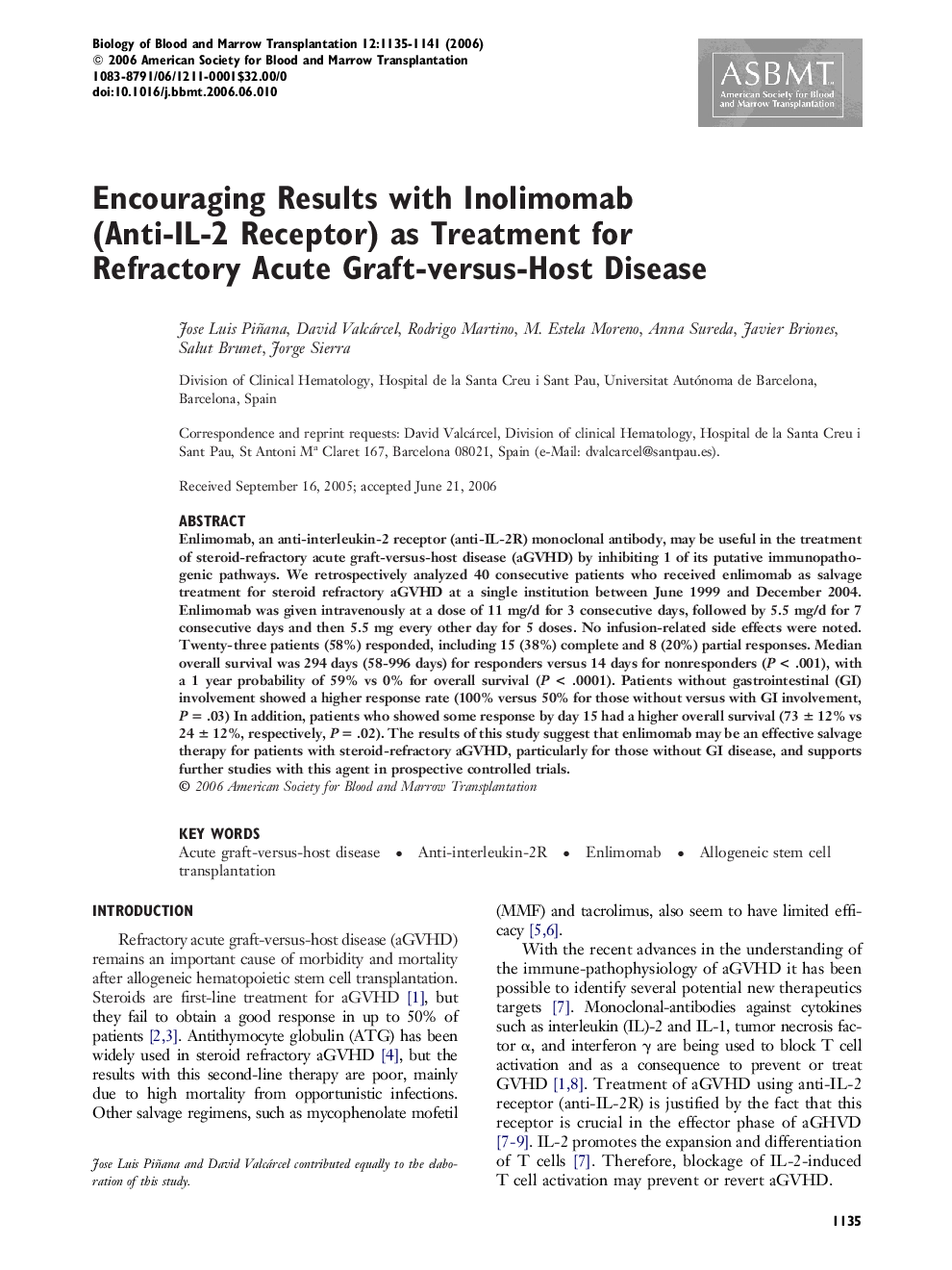| Article ID | Journal | Published Year | Pages | File Type |
|---|---|---|---|---|
| 2105076 | Biology of Blood and Marrow Transplantation | 2006 | 7 Pages |
Enlimomab, an anti-interleukin-2 receptor (anti-IL-2R) monoclonal antibody, may be useful in the treatment of steroid-refractory acute graft-versus-host disease (aGVHD) by inhibiting 1 of its putative immunopathogenic pathways. We retrospectively analyzed 40 consecutive patients who received enlimomab as salvage treatment for steroid refractory aGVHD at a single institution between June 1999 and December 2004. Enlimomab was given intravenously at a dose of 11 mg/d for 3 consecutive days, followed by 5.5 mg/d for 7 consecutive days and then 5.5 mg every other day for 5 doses. No infusion-related side effects were noted. Twenty-three patients (58%) responded, including 15 (38%) complete and 8 (20%) partial responses. Median overall survival was 294 days (58-996 days) for responders versus 14 days for nonresponders (P < .001), with a 1 year probability of 59% vs 0% for overall survival (P < .0001). Patients without gastrointestinal (GI) involvement showed a higher response rate (100% versus 50% for those without versus with GI involvement, P = .03) In addition, patients who showed some response by day 15 had a higher overall survival (73 ± 12% vs 24 ± 12%, respectively, P = .02). The results of this study suggest that enlimomab may be an effective salvage therapy for patients with steroid-refractory aGVHD, particularly for those without GI disease, and supports further studies with this agent in prospective controlled trials.
